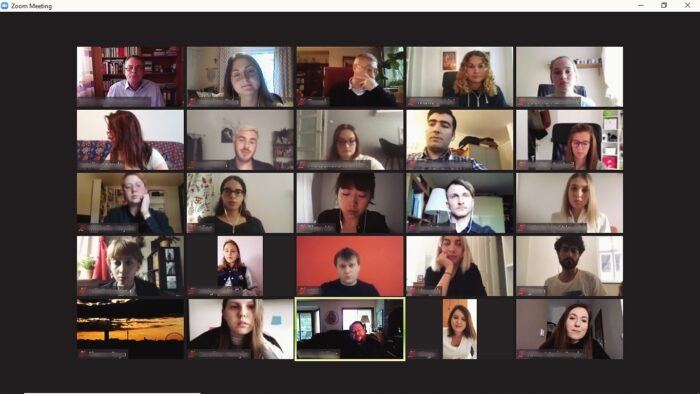This academic year as many as 10 Master students from the ASC were given a terrific opportunity to travel to New Orleans and take part in the 18th Transatlantic Symposium thanks to the scholarship founded by The University’s Integrated Development Programme and The American Studies Center. Since it was originally planned for March, the trip was cancelled due to the pandemic.
Although our international travels have been suspended, we can – luckily! – still travel the roads of academic development. Thanks to the organizers’ great effort, as well as diligence and commitment of the participants, the 18th Transatlantic Symposium “The Legacy and Presence of Colonialism in the Transatlantic World” took place online on June 5, 2020. More than twenty students from University of Warsaw, Humboldt University Berlin, and Oregon State University at Corvallis shared their pre-recorded presentations and articles, which they later discussed during the online meeting.
Students and their supervisors examined the colonial legacy reflected in cultural representations of Native Americans, music genres as gospel and jazz, food culture of New Orleans, sports, and race relations in the United States and Europe. Student presentations focused mostly on culture, however did not overlook topics in the field of politics, philosophy, food and gender studies. All projects presented during the online conference not only showed the magnitude of the heritage and the noticeable presence of the effects of colonialism in various spheres of life, but also confirmed the high level of scientific research among participants of the symposium, and their unique ability for critical analysis.

Special thanks go to the student organizers Kinga Pomykacz and Caroline Szalasa, as well as the coordinators Dr. hab. Tomasz Basiuk and Dr. Natalia Pamuła! Congratulations to the participants: Nikola Wróblewska, Kacper Zaporski, Aleksandra Mackiewicz, Aleksandra Olszewska, Gosia Gramatnikowska, Asia Hamernik, Karolina Toka, Anna Maria Grzybowska and Jacek Boroń.




